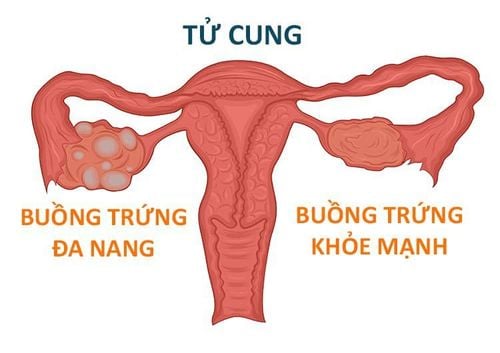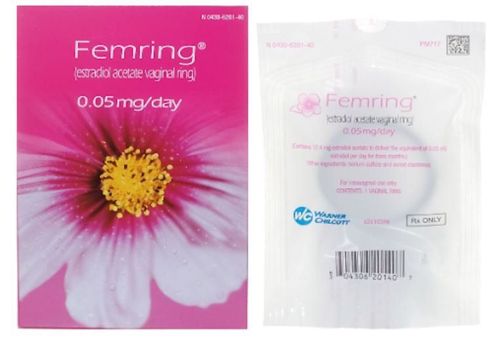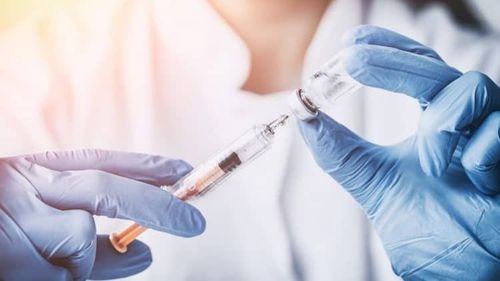This is an automatically translated article.
The article was consulted with Specialist Doctor II Pham Thi Tuyet Mai - Obstetrician and Gynecologist - Department of Obstetrics and Gynecology - Vinmec Hai Phong International General Hospital.Similar to other hormones, testosterone plays an important role in human health. However, when abnormally high or low testosterone levels become a concern, especially in women.
1. Expression of high testosterone levels in women
Although testosterone is often thought of as a male-specific hormone, testing testosterone levels is in fact an important part of assessing fertility in both men and women. High testosterone levels in women (15 - 70 ng/dL) not only affect a woman's appearance, but also pose a potential risk to her reproductive function as well as her general health. Conversely, there are cases of low testosterone levels in women as well, but this usually happens after they have gone through menopause and is not a major obstacle for those who are planning a pregnancy.Manifestations of abnormally high testosterone levels in women include:
Irregular menstrual cycles Menstrual periods but no ovulation (non-ovulatory cycles) Acne breakouts Hirsutism or mustache Hair thin, sparse or bald voice Deep voice Strong muscle growth Mood swings, low sex drive Sex organs (clitoris) are large but breasts are small High testosterone levels also make women more susceptible obesity and risk of infertility.
2. Causes of abnormally high testosterone levels in women
2.1. Polycystic ovary syndrome (PCOS) This is a common hormonal disorder affecting 8-20% of women of reproductive age worldwide. Polycystic ovary syndrome is also a leading cause of infertility in women, as well as being linked to obesity and insulin resistance (type 2 diabetes). The disease is usually detected in women between the ages of 20 and 30 through blood tests and an ultrasound of the ovaries, despite the fact that girls as young as 11 years old can already have PCOS. Currently, experts still do not know the cause of polycystic ovary syndrome, but genetic factors and insulin levels in a woman's body are thought to play a role in this disease.
2.3. Other reasons Adrenal or ovarian cancer: Doctors have found extremely high testosterone levels, specifically greater than 200 ng/dL, in women with two types of cancer. above. Anabolic Steroid Use: Anabolic steroids are man-made hormones used by athletes to improve performance. If women abuse anabolic steroids, it will cause abnormally high testosterone levels in the body. Hirsutism: This is an overproduction of male hormones (androgens) that is genetically linked. Women's hair will grow unusually thick, black, and stiff when hirsutism is present.

3. Treatment of high testosterone levels in women
3.1. For women who do not want to become pregnant When treating high testosterone levels, the doctor will consider the symptoms as well as the wishes of the woman. For women who are trying to get pregnant, the treatment method will be different from the rest of the group.In those who do not want to have children, the treatment that can be applied is the use of oral contraceptives containing the female sex hormones estrogen and progesterone - two active ingredients that can regulate menstruation and enhance femininity. . In addition, the androgenic diuretic spironolactone (trade name Aldactone) is also an option to help regulate water and salt levels, also reducing excessive hair growth in women. It should be noted that the spironolactone contained in this medicine is not safe for pregnant women.
3.2. For women who are hoping to give birth Other measures that women who are planning a pregnancy can choose from include:
Exercise and weight loss: Regular exercise and significant weight loss can help lower testosterone levels, especially in women with polycystic ovary syndrome. This method even works to regulate the ovulation cycle. Metformin: The treatment of insulin resistance with the drug metformin for diabetics is seen as an aid in weight loss and is as effective as attempted exercise. Ovulation-stimulating drugs: In addition to lifestyle changes, women who want to have a baby need to take fertility drugs to increase their chances of conceiving. Clomid and letrozole are the first two fertility treatments for women with PCOS. Cosmetic interventions: Cosmetic treatments such as waxing or plucking are both possible solutions to unwanted hair growth and safe for women trying to conceive. High levels of testosterone in women can cause a range of symptoms that affect their appearance and fertility and are a potential risk factor for certain health problems. If you think you have high testosterone levels, consult your doctor to determine the cause and access appropriate treatments to relieve symptoms and improve quality. life.
Please dial HOTLINE for more information or register for an appointment HERE. Download MyVinmec app to make appointments faster and to manage your bookings easily.













